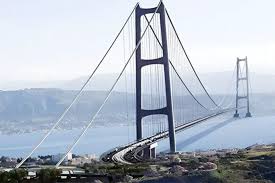JI emir announces historic mass gathering at Minar-e-Pakistan

Lahore: Jamaat-e-Islami Emir Hafiz Naeem ur Rehman has announced that the largest public gathering in Pakistan’s history to be held at Minar-e-Pakistan from November 21 to 23, declaring it a turning point for changing the country’s decaying political and economic system.
Addressing a press conference at Mansoora, he warned the ruling elite to either return the people’s rights or face a peaceful yet powerful public movement. “For Jamaat-e-Islami, toppling oppressive governments is not uncharted territory,” he said.
He announced that leaders of global Islamic movements, representatives of pro-Palestinian organizations, and professionals from around the world will attend the three-day event, which will also host international-level professional conferences.
In the lead-up to the event, 30,000 public committees will be formed nationwide, and a comprehensive mobilization campaign will be launched to ensure mass participation. He urged citizens from across the country to gather at Minar-e-Pakistan and announced that following the event, Jamaat-e-Islami will lead a nationwide peaceful resistance movement representing youth, women, farmers, workers, and other oppressed communities.
Joined by Vice Emirs Liaqat Baloch, Dr. Osama Razi, Secretary General Ameer ul Azeem and other leaders, Rehman highlighted the dire state of national affairs. “The ruling elite, imposed for the past seven decades, have pushed the country to the brink. The common citizen feels there’s no future left in Pakistan,” he remarked.
He noted that mafias operate with state protection, 84 of 89 sugar mills are owned by ruling families, and the judicial system has been crippled through the 26th Constitutional Amendment. “Those who are themselves disqualified are handing out disqualification certificates,” he said, calling the amendment’s architects “criminals in the eyes of the people and history.”
The JI chief also criticized the class-based education system, lack of employment opportunities for youth, and poor working conditions for laborers. He highlighted that less than 10 percent of the country’s 80 million workers enjoy basic rights. “Programs like Benazir Income Support are being used for political gain,” he added. He further stressed the lack of safety and dignity for working women and the need for revolutionary reforms in the agricultural sector, predicting that IT exports could rise from $3–4 billion to $15 billion with the right policies.
The JI leader vowed that the voices of oppressed people from Sindh, Balochistan, and KP will echo from Minar-e-Pakistan. “We will represent the victims of dacoits in Sindh, the oppressed in Balochistan, and those affected by unrest in KP,” he said. “We will show the world that Islam’s system is not just for Muslims but beneficial for all humanity.”





